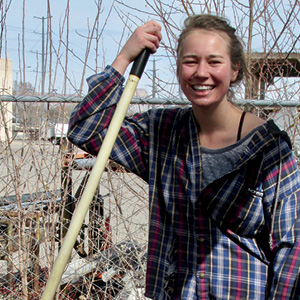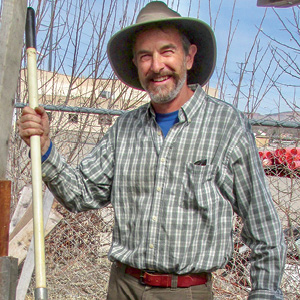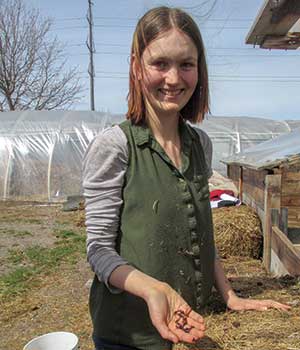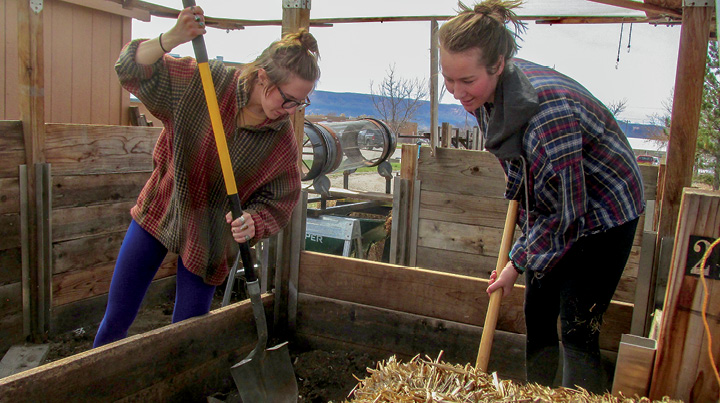After five years, the CMU Sustainability Council has grown the Dr. John Heideman Vermicompost Facility
On a sunny April afternoon, Colorado Mesa University student Katie Remmers shovels compost into a barrel sifter to remove small rocks and other debris. The nutrient-rich soil amendment is created at the CMU/ Western Colorado Community College compost facility.

Members of CMU’s Sustainability Council founded the Dr. John Heideman Vermicompost Facility on the community college campus in fall 2013 to demonstrate what can be accomplished with food scraps. Remmers said she learned in class that 40% of the food produced in the United States is wasted.
“I’ve always wanted to live as sustainably as possible,” she said. “I wanted to learn the basics of composting. It can be small scale and anybody can do it.”
Sustainability Council President Meghan Cline manages the compost facility with help from faculty adviser Bryan Reed, nine part-time student employees and community volunteers. Someone is at the site most every day feeding worms, turning compost and chopping food scraps.

from shoveling compost.
Students collect food waste from the community college’s Chez Lena Restaurant as well as food scraps from the CMU campus. City Market also donates plant-based food leftovers.
It all goes to a good cause — making compost for flower or vegetable gardens, while reducing the amount of food waste that would otherwise be put into landfills.
“It’s a really easy way for the public to be involved in being more sustainable,” said Cline, an environmental science major.
They have fine-tuned the recipe since the compost facility was founded over five years ago according to Reed, lecturer of agricultural science and culinary arts.
“We get leaves from the City of Grand Junction for our carbon source, which we add to our veggies,” he said. “We also get aged horse manure from a Fruita ranch. We mix those three ingredients, add water and keep it aerated.”
The site includes traditional “thermal” compost as well as vermicompost, a product created when students add red wiggler worms to the regular compost to help it decompose faster, which results in an excellent, nutrient-dense organic fertilizer and soil conditioner.

“We’ve achieved really great compost,” Cline said. “You can use it as a mulch, but I recommend mixing it into your soil before planting.”
Anyone can purchase the compost to use in their garden or yard. •

